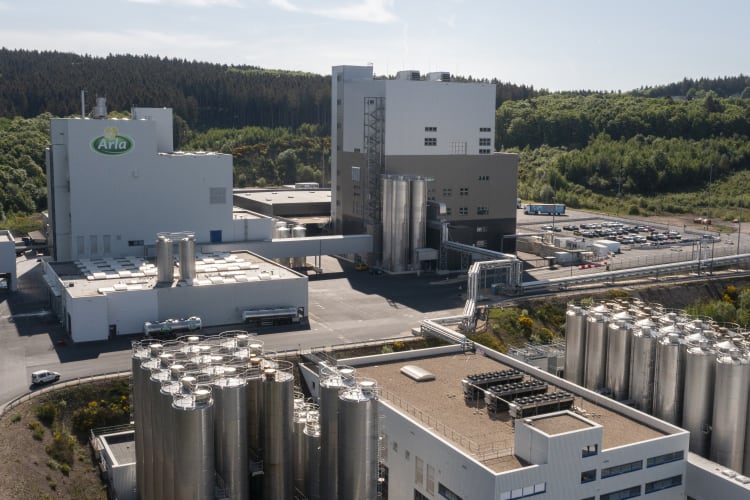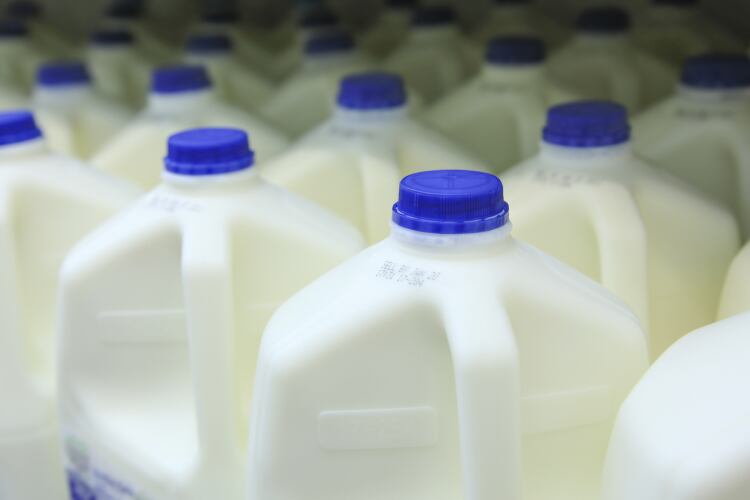Pronsfeld is already Arla’s largest dairy and the new capacity will increase production of milk powder, supporting expected branded volume growth of 5-7% in the group’s international business. Arla said the investment was in line with priorities outlined in its five-year strategy, Future26.
Pronsfeld dairy now includes a production plant housing a 51-metre-high drying tower that can process 685m kilos of milk per year. The milk will be sourced primarily from Arla’s farmer-owners in the region, creating a ‘sustainable channel’ to support higher returns.
Dairy nutrition for Middle East, West Africa and Southeast Asia
The drying tower will produce approximately 90,000 tonnes of ‘high-quality’ milk powder a year, Arla revealed. The company noted that milk powder is particularly suited to its international markets, where it is already an important part of local diets. It’s long shelf-life and ambient state mean milk powder is an important nutritional source in these countries, particularly in ‘fast-growing’ urban areas, the dairy giant suggested.
The expansion of the Pronsfeld dairy will help ensure ‘as many as possible have access to a good, nutritious diet everyday’ Peder Tubirgh, Arla Foods CEO said. This, he believes, is ‘one of the biggest challenges we face globally’.
“We will strengthen and expand our business in international markets such as the Middle East, West Africa and Southeast Asia where the demand for affordable nutritious dairy products exceeds local production as well as local supply,” Tuborgh said.
“As the largest Arla dairy in the world with a strong export business, the new production plant gives the Pronsfeld an even greater place in the growth strategy of our international business.”
Supporting Arla’s ‘ambitious’ climate goals
Arla has already committed to the coal of limiting global warming to 1.5 degrees and the Science Based Target Initiative has approved its plan for a 63% reduction in GHG emissions.
The cooperative claims that its farmers are already ‘amongst the most climate efficient’ dairy producers globally, with an average climate footprint of 1.15 kilos of CO2e per kilo of milk.
The expansion of its largest dairy will contribute towards its climate ambitions, Arla said, pointing to the facility’s energy efficiency. A new technical setup for electricity and heat generation, called a CHP, and process cooling will reduce carbon footprint and energy consumption by 1,200 tonnes of CO2e and 1,800 megawatt hours of electricity per year.
As there is currently no green energy alternative to the natural gas used for the new production facility, Arla will purchase green energy certificates for both the gas and electricity used at the site. Arla is, however, looking to replace 25% of the natural gas used with hydrogen in the future, potentially further cutting the site’s carbon footprint.
“This is an important step in the evolution of our manufacturing footprint towards more efficient and decarbonised dairy production, building on our strengths here in Germany and leveraging the latest technologies. This sets the standard for our future generation of assets that will support our new strategy to be a leader in value creation and sustainability,” EVP and Head of Supply Chain David Boulanger commented.




